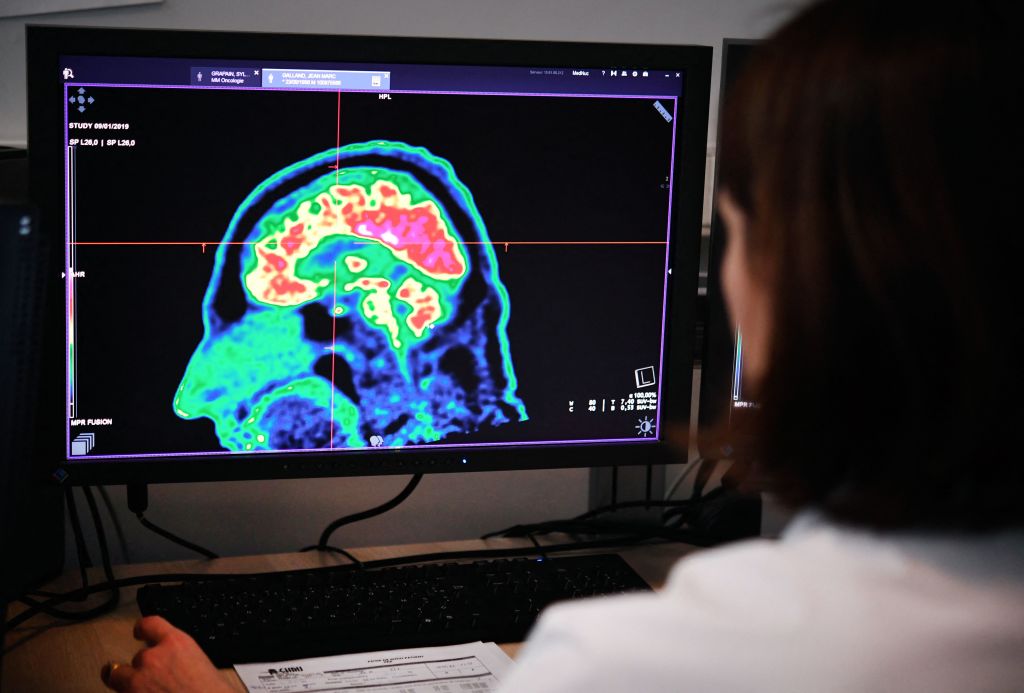Title: Medicare Lifts Lifetime Limit on PET Scans, Expanding Alzheimer’s Diagnosis Options
Subtitle: CMS Policy Change Removes Barriers to Accessible Alzheimer’s Diagnostic Tools
By Pierre Herubel
Image: [Insert Image Description]
The US Centers for Medicare and Medicaid Services (CMS) have made an important policy change to remove the lifetime limit on amyloid positron emission tomography (PET) scans. This change expands access to a critical diagnostic tool for Alzheimer’s disease and allows patients to undergo non-invasive tests to qualify for new Alzheimer’s medications.
Amyloid PET scans play a crucial role in identifying amyloid plaque clusters, a key indicator of Alzheimer’s disease that impairs memory and cognition. Previously, these scans were primarily used in clinical trial settings. Now, with the lifting of the lifetime limit, more patients can benefit from this diagnostic tool.
The Alzheimer’s Association’s Chief Science Officer, Maria Carrillo, emphasized the value of amyloid PET scans in the diagnosis and management of Alzheimer’s disease. She stated that easier access to these scans will enable earlier and more precise diagnoses, leading to improved care coordination and health outcomes.
Furthermore, the Alzheimer’s Association has actively supported the advancement of Alzheimer’s research, diagnosis, and treatment through initiatives such as the IDEAS Study and the New IDEAS Study. These studies, conducted in partnership with CMS, aim to enhance our understanding of how PET scans can help diagnose and treat Alzheimer’s, particularly in diverse and marginalized communities.
According to the IDEAS Study, patients with dementia and mild cognitive impairment (MCI) who underwent amyloid PET scans had different patient care strategies. This highlights the importance of accurate diagnosis and the use of PET as a biomarker, especially among underrepresented populations in the US.
Amyloid PET scans have become even more valuable in the new era of treatment, as they are used to determine diagnosis and eligibility for FDA-approved treatments. Recent clinical trial results suggest that PET scans can also track changes in a person’s level of beta-amyloid during treatment, potentially pausing treatment as amyloid beta levels decrease.
Experts are urging swift implementation of the new PET scan policy. A nationwide data-gathering registry is needed to demonstrate the presence of amyloid in the brain for government funding eligibility. The Alzheimer’s Association is advocating for full and equal coverage of PET scans by Medicare Administrative Contractors (MACs) for all Medicare enrollees.
The CMS policy change reflects the FDA’s confidence in the technology and represents a significant advancement in Alzheimer’s disease detection and therapy. The estimated cost of a single PET scan for a Medicare patient is around $313.
In conclusion, the removal of the lifetime limit on PET scans for Alzheimer’s diagnosis is a welcome development that opens up new possibilities for patients seeking accurate and timely diagnoses. By expanding access to this vital diagnostic tool, Medicare is taking a significant step towards improving Alzheimer’s care and outcomes for patients across the United States.
Note: The article was written by Pierre Herubel, an SEO and high-end writer. All rights reserved.

I have over 10 years of experience in the cryptocurrency industry and I have been on the list of the top authors on LinkedIn for the past 5 years. I have a wealth of knowledge to share with my readers, and my goal is to help them navigate the ever-changing world of cryptocurrencies.




